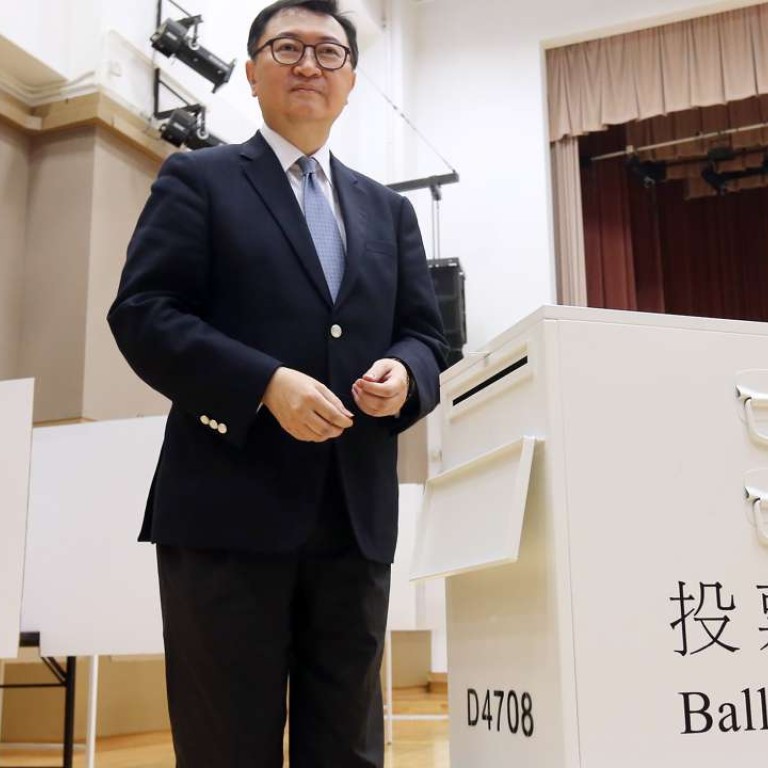
In undemocratic Hong Kong, the election watchdog is asleep on the job
Albert Cheng calls on the Electoral Affairs Commission to look into instances of apparent abuse of electoral guidelines by some parties, ahead of September’s Legco election
Hong Kong elections are embarrassingly undemocratic. The least we can do is ensure that the upcoming Legislative Council and chief executive races are fair for all eligible candidates.

Hong Kong government accused of interfering in Legco polls after think tank quizzes electors
Meanwhile, Shiu Sin-por, head of the Central Policy Unit, has been accused of using public resources to conduct a confidential opinion survey to keep Leung informed of public sentiment relating to his re-election bid. The advisory body, which has an annual operating budget of HK$90 million, is normally tasked with gauging public views on policy issues such as housing prices, medical services and retirement options. According to the media, however, it recently asked potential voters how much importance they would attach to candidates’ stance on Leung’s re-election. Such data could help candidates favoured by the Leung administration to adjust their campaign strategies.
There appears to be a case for an investigation into whether individual officials have overstepped the mark to prepare Leung and the pro-establishment camp for the election.
The Electoral Affairs Commission chaired by Barnabas Fung Wah is supposed to monitor and tackle such issues. It should act as an impartial and apolitical body to ensure that the elections are conducted openly, fairly and honestly.

Guns, cannons ... and polyps: can Hong Kong’s largest pro-Beijing party weather political storm?
Fung’s recent responses to election-related questions have been, at best, ambiguous. Take the case of legislator Christopher Chung Shu-kun, of the Democratic Alliance for the Betterment and Progress of Hong Kong, who disclosed that his party had previously used exit poll results to adjust their tactics on polling day. Chung claimed that, in the 2012 Legco election, the DAB siphoned votes to Federation of Trade Unions candidate Wong Kwok-hing after an exit poll showed that Chung and Jasper Tsang had already secured enough votes to be elected. Not surprisingly, DAB leaders denied knowledge of the exit poll. Fung also downplayed the issue by saying there was no evidence to show that exit pollsters had passed on the results to the DAB. If they did, that would be in breach of Electoral Affairs Commission guidelines.
The commission’s performance has been disappointing so far. Both the DAB and the FTU have started their Legco campaign early. Large billboards promoting their leaders are already up in strategic locations. These ads are clearly meant to promote their candidates; the more resourceful parties are taking advantage of a grey area in the electoral laws on campaign expenditure.
The Electoral Affairs Commission is the public’s last line of defence in an undemocratic system. Unfortunately, it can hardly be trusted as a vigilant watchdog.
Albert Cheng King-hon is a political commentator. [email protected]

